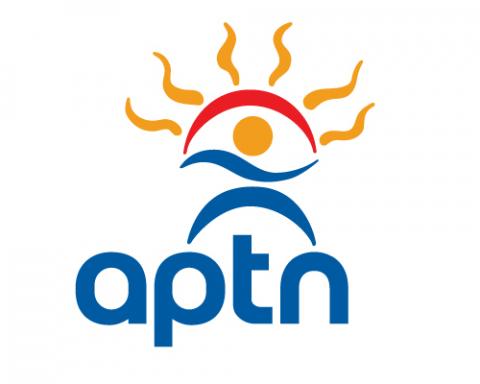Summary: WCT Roundtable on Women’s Leadership in the Digital Economy April 19th 2017
By: Shann McGrail
A late addition to the cross Canada WCT Blueprint for Women’s Leadership roundtable series was set up to coincide with the introduction of a new WCT chapter in Waterloo. This event proved to be rich with content. It augmented contributions from previous roundtables and introduced a few new perspectives that we had not yet explored over the course of the tour. It was exciting to be part of this new chapter’s inaugural event and to meet yet another group of eager, enthusiastic, and talented women and men who understand the importance of advancing women in the digital economy and who are willing to dig in to turn ideas into action.
Hosted by Communitech, the format was altered slightly from the previous roundtables. Rather than separating into breakout groups, agenda topics were discussed as one large group. As in previous sessions, the group explored the topics of career advancement, resources required, and measuring success. Unique to this session, the group took the opportunity to relate experiences of women in Waterloo to comments and suggestions that were heard in roundtables across the country.
Discussion Themes Consistent with Previous Roundtables
In discussing what was captured in previous roundtables, the group was very much in line with many of the findings and suggestions raised but offered their own Waterloo perspective on things as discussed below.
Mentorship & Career Sponsorship
Mentorship and career sponsorship were highlighted as being effective in supporting women’s advancement. The group emphasized that mentors and sponsors need to really step up and advocate for their mentees and proteges.
Storytelling
The group discussed the importance of raising the profile of success stories, role models, and companies. An added twist was for regions such as Waterloo to consider being more active in telling their diversity stories to help attract and retain talent in a particular geography. This has obvious benefits for companies and the local economy.
Leadership
Leadership in action and transparency of the approach to diversity is as important in Waterloo as it is across the rest country.
Harassment in the Workplace
This theme was not brought up in all previous sessions but it was tabled in quite a few of them and here again in Waterloo. There is no question that this is a big topic that needs more time and attention than what could reasonably be tackled in the scope of the current roundtable series. That said, the group in Waterloo suggested that having a consistent toolkit and a clear process for handling harassment would be a good start, noting that even these are lacking in many of today’s companies.
Innovating on Previous Discussion Themes
With the benefit of hearing about what was suggested in other cities, the group in Waterloo was afforded the opportunity to innovate and further develop those ideas. Below is some of what the group put forward.
Recruiting and Reputation Management
In a hot labour market, where companies are desperate for technical talent to survive and thrive (as is the case in Waterloo), a company needs to guard its reputation if it hopes to attract candidates. When it comes to diversity, that means it is not good enough to post the policy and some photos with people of all ages, races, and genders on the website. A company must live the value of diversity every day, in every interaction, internally and externally. Managers need to be trained to incorporate diversity awareness into all aspects of the business and leadership needs to be visible in the community relative to this topic (for example, by attending a WCT roundtable event!). Of course, the obvious reason to do this is to assist in recruiting and attracting talent.
Peel back the layers and what is surprising to some but not others is the power of the informal network. Women are very good at sharing and supporting each other. If a company does not practice what it preaches around diversity, it is a certainty that the women inside the company are not going to fudge the facts when asked by friends, colleagues, or other associates in their network about the job conditions and opportunities for advancement.
Diversity Index
Related to the idea of having a strong corporate reputation was the need for an index that would rate and rank companies on their “female friendly” work environments. While there are some rakings in the market today, the group felt that these could be gamed and did not provide enough depth to be of real value.
Accountability
The importance of accountability came up through other roundtables, but this group took it to a new level and proposed putting dollars on the table. With a diversity-supportive government in place, the suggestion was that diversity efforts should be a requirement of government funding. We cannot stop there though. Companies would have to track and report on their results and funding would be given or taken back depending on what has been achieved. The Government’s Scientific Research and Experimental Development (SR&ED) tax credits were cited as an interesting place to start.
Improving Diversity
Some great suggestions emerged on how a company can work to improve diversity performance:
- Focus. Institute 15-minute weekly meetings on diversity to hold focus on its importance and create an opportunity to talk about issues on a timely basis. Add mentorship and sponsorship to the company’s key performance indicators and manage accordingly.
- Talent Development. The supply of technical talent may be increased with more efforts on career pathing. For example, a company can look more thoughtfully at which non-technical roles have the skills and competencies that form a strong foundation and would benefit from technical training and experiences.
- Retention and Development. An interesting point for companies to consider if they want to retain female talent is to make sure they are providing the same level of challenge and stretch assignments to women as men. Without this, it is too easy to say women are not ready for promotion when the time comes. The result—too many women become frustrated and take their skills elsewhere.
Conclusion
The discussion in Waterloo was so lively and rich with content that much more could be added to this summary… but all good things must end (at least for the moment). A big “thank you!” to Danielle Goleman of Communitech for providing the location and to Tammy Bender for leading the WCT chapter in Waterloo and assembling such an engaged group of leaders.
With the roundtable tour, complete and amazing ideas having been gathered from across the country, WCT will be working on distilling everything into a paper to be published in early 2018. If you feel you have more to contribute towards this effort and would like to get involved, please let us know!





